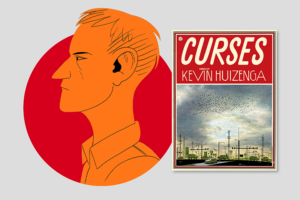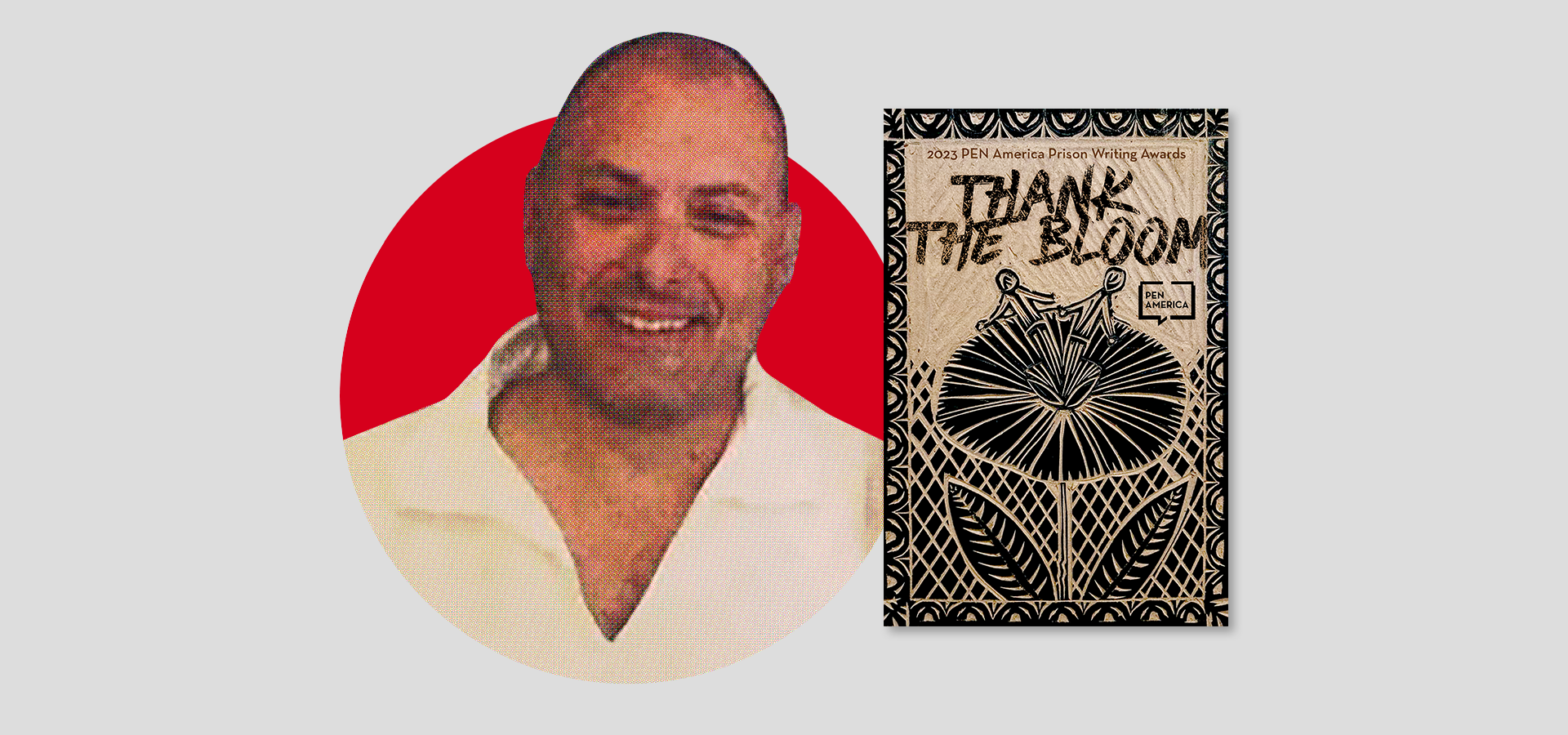
Matthew Mendoza | The PEN Ten Interview
June 4, 2024
The protagonist in Matthew Mendoza’s story, “Hinges & Runners,” repeatedly makes unproductive decisions and returns to an unfortunate situation. Across just 123 words organized into three paragraphs, the flash fiction introduces three characters who all observe and participate—albeit differently—in a formula for abuse. A writer who has explored and published in multiple genres, Mendoza employs a very keen sense of plot and characterization here that invites readers to draw their own conclusions.
“Hinges & Runners” earned Matthew Mendoza an Honorable Mention in Fiction in the most recent PEN Prison Writing Awards, and is published in Thank the Bloom: 2023 Prison Writing Awards Anthology. In this interview with Malcolm Tariq, senior editorial manager for PEN America’s Prison and Justice Writing Program, Mendoza discusses his writing process, what community looks like for him, and discovering the power of language.
1. “Hinges & Runners” is a moving piece of fiction. How would you describe the story to a potential reader? What would you say it’s about?
“Hinges & Runners” is a really short story. It’s so short that talking about it might take longer than reading it. I describe it like this: Marren struggles to adult well. After a bad date, she trespasses, gets high, and vandalizes, then reignites an abusive relationship. And she does it in three short paragraphs.
2. In less than 150 words, you use characterization to mobilize readers toward a plot that seems to be both there and not. I also find it fascinating that the story closes poetically with that striking image: “the hard steel against her forehead as they both pretended that she was the intruder.” And, like a poem, every word choice is deliberate. Would you consider this flash fiction? How did you decide where to start and how you wanted such a story to end?
I love flash fiction. If someone wants to call “Hinges & Runners” a poem I’m okay with that too. I understand that “Hinges & Runners” is difficult to place. For me it’s a short story.
Sometimes a writer can cheat a short story into being with tone, using the musicality of words to create a feeling. “Hinges & Runners” is too short to cheat. The really heavy lifting after I finished the story was the sentence order. I wanted the reader to understand that Marren feels crushed by all the lives that she’s not living – to steal the great Jonathan Safron Foer’s amazing line. To do that I needed to create momentum and pressure. The hard introduction to Marren forces the reader into the story. Then I arranged the sentences into a kind of batting order.
“Sometimes a writer can cheat a short story into being with tone, using the musicality of words to create a feeling. “Hinges & Runners” is too short to cheat.“
3. What does your process look like? What was it like for “Hinges & Runners” in particular?
I live in prison so my writing process involves deep dives into my memories. I salvage. I scavenge. I cobble conversations and events together. It doesn’t always work – most of what I write doesn’t work. I don’t let that stop me.
“Hinges & Runners” started with the sentence, “Sarah with an H told Marren that lip balm silenced hinges and runners.” That sentence just carried so much weight. It’s a tent pole. Then I couple ethereal images to loaded phrases with strong verbs and type the story over and over again until it works (or it doesn’t.)
4. How would you define your writing community? How does your community (writing or otherwise) guide your work?
I’m not sure that I have a writing community. I have a writer’s neighborhood. Maybe a writer’s block. My boss at Evening Street Review, Barbara Bergmann, is always supportive. Bernadette Armstrong at Open-Door Playhouse is amazing. Robby Henson at Pioneer Playhouse infuses adrenaline into my plays when he directs them. Robbie Pollock (formerly) at PEN America is my hero. When someone contacts me about producing one of my plays he is in the mix somewhere.
Just by them acknowledging me as a writer gives me strength. They tolerate my bad puns and share my exuberance for books and movies. I have a bad habit of rushing to publish. I edit after I get the rejection slip. No one can help me with that but they don’t judge me.
“I live in prison so my writing process involves deep dives into my memories. I salvage. I scavenge. I cobble conversations and events together. It doesn’t always work – most of what I write doesn’t work. I don’t let that stop me.“
5. What is your relationship to place and story? Are there specific places you keep going back to in your writing?
Place and story are important to me. The best work exists where the amazing and magical meet the sinister. Hounds of Love (Kate Bush), Train Dreams (Denis Johnson), The House on Mango Street (Sandra Cisneros), and the poems of Frank Bidart are great examples of work that exists in that middle place – an adult Diagon Alley or Narnia or Chicago. My stories try to share that place.
6. What was an early experience where you learned that language had power?
How about a recent one instead? My mom began Hospice care and then almost immediately went into end of life care. My family got through the prison’s labyrinthine system of gatekeepers and I was able to say goodbye to my mom. I think that is a good example of the power of words.
7. What was the first book that had a profound impact on you and how did you discover it?
There are a lot of books that have had a profound effect on me. The Norton Anthology of Modern Poetry is high on the list. That assemblage of voices is the holy book for playwrights. But number one for me is the Tennessee Williams play, The Glass Menagerie. It’s funny because The Glass Menagerie is not even my favorite Tennessee Williams play, but it was the first time that a text became voices for me. That metaphysical want can be shown was big.
8. Not including those two books, do you have a favorite literary character? If not, which work of literature would you choose to live in, albeit briefly or long term, and why?
I love hypothetical questions. I would pick Gravity’s Rainbow. I love the idea of a situation so desperate that a government sends an oddball overflowing with esoteric knowledge on an urgent mysterious mission.
“Place and story are important to me. The best work exists where the amazing and magical meet the sinister.“
9. What advice would you give emerging writers?
One of my early mentors, Owen King, asked me if I thought that writing could be taught. The answer I gave was no. I don’t believe that it can be taught but it can be learned. Everything you need is in your favorite book. Description, dialogue, sentence structure—it’s all there. Including what should be left out.
10. As a writer, what are you most proud of?
The podcast of my play “What’s Prison Like?” was nominated as a 2023 Webby Award Honoree in the “Crime and Justice” category. Bernadette Armstrong directed the podcast and nailed it. We were up against some big time podcasts. “Criminal” won. Our little underdog “What’s Prison Like?” finished third out of four entries. I’m really proud of us.
Matthew Mendoza has published fiction, nonfiction, and poetry from prison in Texas, including the forthcoming chapbook, DIY Prison Project (Evening Street Press, 2024). His work has appeared in Atlanta Review, Big Muddy, and Comstock Review, among others. His plays have been performed in New York City as part of the Brooklyn Book Festival and Nylon Fusion Theatre Company. A podcast of his play, What’s Prison Like?, was produced by Open-Door Playhouse and nominated for a 2023 Webby Award. He has won awards from American Short Fiction and PEN America. Most recently, his short story, “Hinges & Runners,” was published in Thank the Bloom: 2023 PEN Prison Writing Awards. Matthew is associate editor for Evening Street Review.
The PEN Ten Interview Series
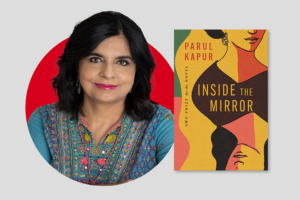
Parul Kapur | The PEN Ten Interview
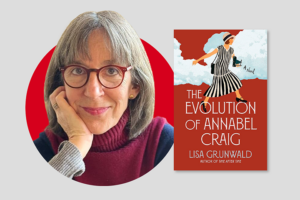
Lisa Grunwald | The PEN Ten Interview
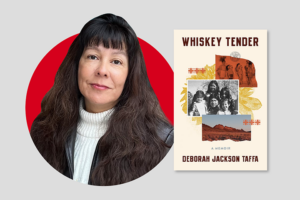
Deborah Jackson Taffa | The PEN Ten Interview
